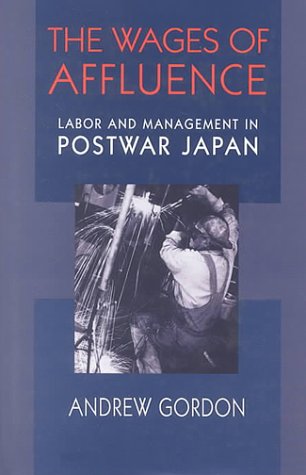This text explores the Japanese enterprise system, the workplace and reveals a complex history of contest and confrontation. The Japanese model produced a dynamic economy which owed as much to coersion as to happy consensus. Managerial hegemony was achieved only after a bitter struggle that undermined the democratic potential of postwar society. It draws on examples across Japanese industry, focusing mainly on steel and iron. This industry was the centre of the country's economic recovery and high-speed growth, a site of corporate managerial strategy and important labour union initiatives. Beginning with Occupation reforms and their influence on the workplace, Andrew Gordon traces worker activism and protest in the 1950s and 1960s, and how they gave way to managment victory in the 1960s and 1970s. He shows how working people had to compromise institutions of self-determination in pursuit of economic affluence. The text refers to other capitalist workplaces which assumed very different practices and looks to Japan's future.
- ISBN10 0674805771
- ISBN13 9780674805774
- Publish Date 4 January 1999
- Publish Status Out of Print
- Out of Print 16 September 2009
- Publish Country US
- Imprint Harvard University Press
- Format Hardcover
- Pages 278
- Language English
